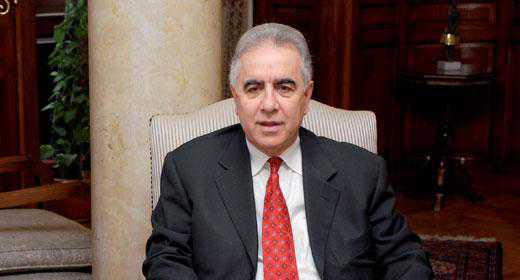
I just returned from a three-day conference in Yerevan where 40 Armenian activists, journalists, and representatives of political, religious and cultural organizations from 18 countries (Argentina, Armenia, Artsakh, Belgium, Brazil, Canada, Denmark, Egypt, Ethiopia, France, Iran, Israel, Lebanon, Netherlands, Russia, Syria, United States, and Uruguay) attended closed-door briefings from senior government officials.
The attendees met with the Vice Speaker and chairs of all parliamentary committees, President’s Chief of Staff Vigen Sargsyan, Foreign Minister Eduard Nalbandian, Defense Minister Seyran Ohanyan, Diaspora Minister Hranush Hakobyan, National Security Council Secretary Artur Baghdasaryan, Constitutional Court Chairman Gagik Harutunyan, and President of Artsakh Bako Sahakyan
Since the briefings dealt with sensitive political and national security issues and were off-the-record, I can only disclose the general topics without attribution to a specific speaker or participant:
— Armenia’s decision to join the CIS Customs Union instead of signing the European Association Agreement;
— Threats to Armenia’s national security and efforts to neutralize them;
— Preparations for possible international legal action against Turkey to secure restitution for the Armenian Genocide;
— Plans for the Centennial of the Armenian Genocide;
— Status of signed but not ratified Armenia-Turkey Protocols;
— Superior morale of victorious Armenian soldiers — an advantage over Azeris in a renewed war with Azerbaijan;
— Diaspora’s participation in the economic development of Armenia and Artsakh.
The conference, organized by the Diaspora Ministry, provided the participants the rare opportunity to offer their critical assessment of the situation in the homeland and to openly question Armenia’s and Artsakh’s highest officials. The political leaders and their diasporan guests emphasized the urgent need for a framework or structure that would coordinate the efforts of Armenians in Armenia, Artsakh and Diaspora. During the conference and media interviews, I proposed the creation of a pan-Armenian committee which would include representatives from Armenia, Artsakh, and Diaspora, to deal expressly with the critical needs of Artsakh, similar to the Centennial Committee for the Armenian Genocide, except that the Artsakh committee would be of a permanent nature.
On September 21, the conference participants were invited to attend the special presidential reception in celebration of Armenia’s Independence Day. The evening ended with an impressive concert and fireworks show in Republic Square.
Prior to arriving in Yerevan, I attended the spiritually uplifting consecration of Moscow’s Armenian Cathedral, which reportedly cost tens of millions of dollars contributed by generous Russian-Armenian businessmen. The magnificent church structure and the nearby community center are expected to play a critical role in preserving the Armenian language and Christian faith for the two-million Armenians living in Russia. The September 17 consecration ceremony was attended by the Presidents of Armenia and Artsakh,Catholicos Karekin II, high-ranking Armenian clergymen from around the world, and Russian Orthodox Patriarch Kirill. Pres. Putin did not attend due to his absence from Moscow.
On this august occasion, a series of concerts, receptions and banquets were held in Moscow hosted by the Armenian Diocese of Russia for the large number of guests from throughout the world. In appreciation, Catholicos Karekin II recognized the two dozen benefactors of the Cathedral by bestowing upon them the highest honorific medals of the Armenian Church.
While in Moscow, I attended several jewelry-related events, organized by prominent Armenian jewelers in Russia. For the first time in a hundred years, an Armenian, Gagik Gevorkyan, President of Estet Jewelry House, was elected head of the prestigious Russian Jewelers Guild. Mr. Gevorkyan sponsored the lavish annual Jewelry Charity Ball at his company’s headquarters in Moscow, attended by over a thousand jewelers and their families, including well-known Armenian jewelers from France, Canada, and the United States.
With a sense of great pride, I watched members of the Armenian Jewelers Association from Russia and North America address the distinguished guests at the International Jewelry Economic Forum and display their precious handiwork at JUNWEX, the XII International Jewelry and Watch Exhibition.
Before departing Moscow, I gave several TV interviews and participated in a panel discussion on Hayk Demoyan’s new book, “Turkey’s Foreign Policy and the Karabagh Conflict.”
Despite the hectic schedule, my journey to Moscow and Yerevan opened up important networking opportunities for closer collaboration between Armenia and the two largest diaspora communities of Russia and the United States.

